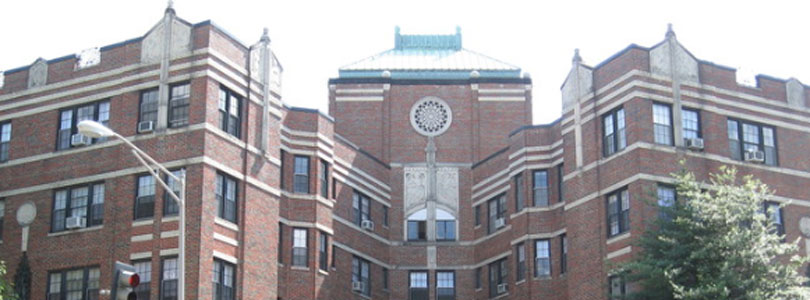The Choice Between a Free and Natural Society and Institutionalization
A Washington Post article by Peter Jamison offers a fascinating look at a progressive housing program in Washington, D.C., that had a predictable result.
The city “dramatically increased the value of rental subsidies,” so recipients of housing aid could get out of “impoverished, high-crime areas” and have “a shot at living in more desirable neighborhoods.” For some reason, in the case of an upscale apartment building called Sedgwick Gardens, “many of the new tenants are previously homeless men and women who came directly from shelters or the streets, some still struggling with severe behavioral problems.”
Life in the building has changed, as indicated by the quadrupling of police calls to the premises. Some pre-existing tenants have “fled,” and the city is now paying for social workers to staff the building (apparently around the clock). The fascinating question arises in this passage:
Even some Sedgwick Gardens residents who receive public assistance say the complex was colonized by the city’s housing programs too rapidly and without sufficient oversight.
“It’s not about the voucher program. It’s not about racism. It’s about people’s conduct and behavior,” said Lorraine Starkes, 61, a formerly homeless woman who moved into Sedgwick Gardens using a voucher about two years ago.
Starkes, who is black, said some of her fellow tenants with vouchers were not properly screened by city officials before moving in. Now, she said, those residents have overwhelmed her new home and “are trying to turn it into a ghetto.”
The article then dives into a disagreement about whether the issue is that people with social and mental problems were deinstitutionalized too quickly, but I don’t think that quite gets to the basic decision that created the problem. Once you dispense with the idea that people are where they are in life and have to take ultimate responsibility for themselves, somebody has to begin deciding where people should be. In a time of political correctness, such decisions can’t even be answered honestly, let alone objectively.
Ms. Starkes’s suggestion about screening gets to the heart of the matter. If you screen people out of the really nice building, you’re implicitly saying that they are fit to live with a different sort of people. Imagine a system that requires voucher recipients to prove certain behaviors that increase the amount of their vouchers until they’ve earned the right to live in a high-end place; by implementing such a system, you’d be saying that families in the lower-end places deserve to live with these folks.
One or the other has to be true: either there must be some differentiation between neighborhoods for which a person with social problems is fit (put bluntly, a qualitative difference between the ghetto and the upscale apartment), or people must be institutionalized until they are ready for even the most refined environment. Having decided that no differentiation is acceptable, the District of Columbia has begun bringing the institute to a high-end apartment complex, as the introduction of around-the-clock social workers shows.
If the United States follows this decision, there soon will be nowhere left to go where you aren’t institutionalized.




